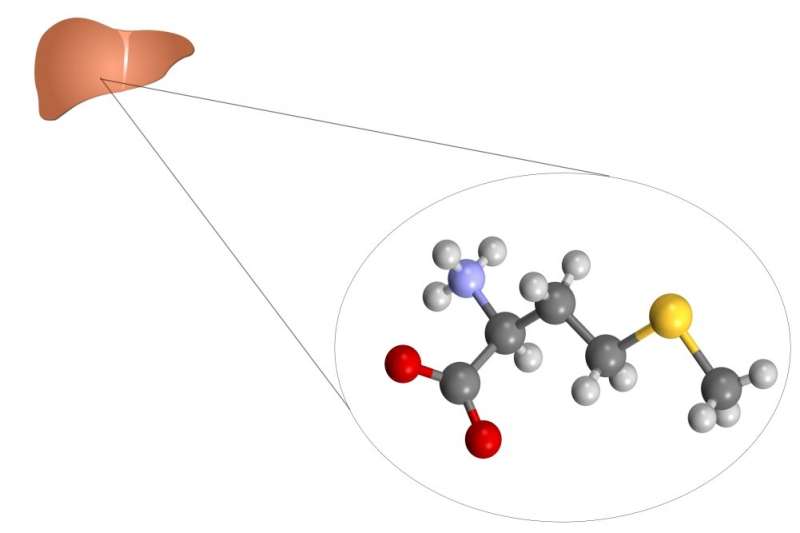
Having shown that diet can influence gene expression, science is starting to find out more about how this happens. According to an article recently published in Food and Chemical Toxicology, a diet supplemented with or deficient in methionine, an essential amino acid abundant in eggs, meat and seafood, affects the expression of genes associated with liver cell fat metabolism and genes that modify chromatin, the coiled fibers made up of DNA and proteins that form chromosomes in cells.
The study investigated how methionine influences DNA methylation, a biochemical process involving addition of a methyl radical to the DNA molecule. This is an epigenetic change, meaning an alteration in the expression profile of the genes that define an individual’s characteristics (phenotype). Epigenetic changes can be repeated in cell division and be transmitted to descendants, although they are not the same as alterations in the DNA sequence (genotype). The links between methylation and disease are widely studied by scientists at present.
To investigate the epigenetic mechanisms involved in alterations to liver cells, the researchers fed mice a methionine-deficient or methionine-supplemented diet and then extracted cells from their livers for molecular analysis.
This study, the fourth published by the Nutrigenomics Research Group at the University of São Paulo’s Ribeirão Preto School of Pharmaceutical Sciences (FCFRP-USP) in Brazil, is based on data generated during the Ph.D. research of Alexandre Ferro Aissa, who was supported by FAPESP via a doctoral scholarship and a scholarship for a research internship abroad.
The study also involved collaboration with a team led by Igor Pogribny, a researcher at the National Center for Toxicological Research, a branch of the United States Food and Drug Administration (FDA). Pogribny has pioneered research on methylation and the role of methionine, focusing on hepatic steatosis (non-alcoholic fatty liver disease), currently considered an epidemic. Pogribny himself suggested Aissa investigate the action of methionine on liver cells.
Previous studies by the FCFRP-USP group, such as one reported in 2014 in Molecular Nutrition & Food Research, showed that dietary methionine deficiency and supplementation can cause molecular abnormalities associated with hepatic steatosis, including altered gene expression leading to lipid accumulation in the liver. The researchers found there that fat accumulated in liver cells only when there was a deficiency of methionine, bringing about a predisposition to cirrhosis, cancer, and other diseases. “But we didn’t yet know how this happens,” Aissa told Agência FAPESP.
The findings contribute to a better understanding of the action of compounds present in diet on gene regulation, including the impact of diet on microRNAs (or miRNAs, small RNA molecules that do not give rise to proteins but regulate the functioning of genes).
“We observed that diets with inadequate levels of methionine, especially those deficient in the amino acid, can cause dysregulation of several microRNAs that play a significant role in liver homeostasis,” said Lusânia Maria Greggi Antunes, corresponding author of the article and coordinator of the Nutrigenomics Group at FCFRP-USP. “Our analyses detected a large number of genes that could be targeted by these microRNAs linked to liver homeostasis, including miR-190b-5p, miR-130b-3p, miR-376c-3p, miR-411-5p, miR-29c-3p, miR-295-3p, and miR-467d-5p, with methionine-deficient diet having the more substantial effect,” Aissa said.
For Antunes, “The specific contribution of this study is a list of some of the biomarkers associated with a tissue alteration, such as the genes with an altered methylation pattern and the microRNAs linked to this process. All this can be used to improve diagnosis and prognosis.”
The group still has a large amount of data to analyze. The latest study, for example, involved female mice in their reproductive period, so that it will be possible to analyze the effects of methionine deficiency and supplementation on their descendants. They also have data on methionine metabolism and its influence on the development of cardiac disease, including epigenetic mechanisms.
Mônica Tarantino, FAPESP

